August 18 stands as one of history’s most eventful days, witnessing the rise and fall of empires, groundbreaking discoveries, and moments that shaped our modern world across centuries of human achievement.
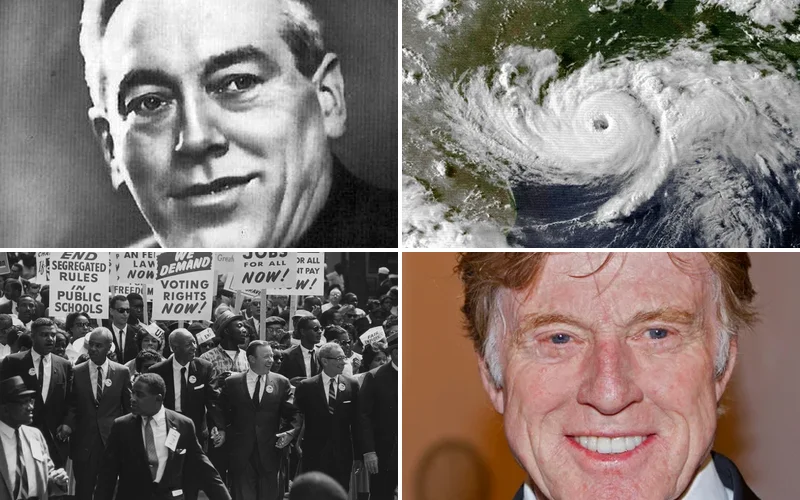
Politics and Government Events on August 18
1920 – Nineteenth Amendment Ratified
The United States Constitution gained its nineteenth amendment, fundamentally transforming American democracy by guaranteeing women’s suffrage. This historic ratification culminated decades of activism and struggle by suffragettes across the nation.
The amendment’s passage marked a pivotal moment in expanding democratic participation. Women gained the constitutional right to vote, doubling the electorate and reshaping American political landscapes forever.
1945 – Sukarno Becomes Indonesia’s First President
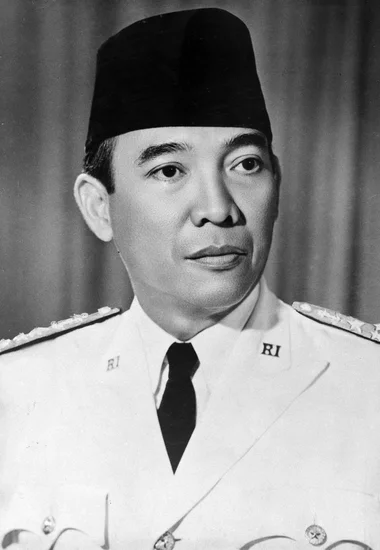
Sukarno assumed office as Indonesia’s inaugural president following the country’s declaration of independence the previous day. His leadership would guide the newly formed nation through its critical early years of sovereignty.
The transition marked Indonesia’s emergence as an independent republic after centuries of colonial rule. Sukarno’s presidency established the foundation for modern Indonesian governance and national identity.
1963 – James Meredith Graduates from University of Mississippi

James Meredith achieved a historic milestone by becoming the first African American to graduate from the University of Mississippi. His academic success represented a significant victory for the civil rights movement.
The graduation ceremony symbolized the gradual breaking down of racial barriers in higher education. Meredith’s achievement inspired countless other African Americans to pursue advanced education despite institutional resistance.
1977 – Steve Biko Arrested in South Africa
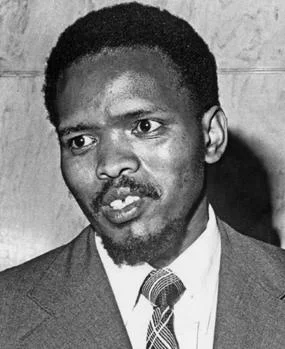
South African police arrested anti-apartheid activist Steve Biko at a roadblock under the Terrorism Act. His subsequent death from injuries sustained during arrest would galvanize international opposition to apartheid policies.
Biko’s arrest marked a turning point in global awareness of South Africa’s oppressive racial system. His death became a rallying cry for human rights advocates worldwide and intensified pressure for democratic reform.
2008 – President Musharraf Resigns
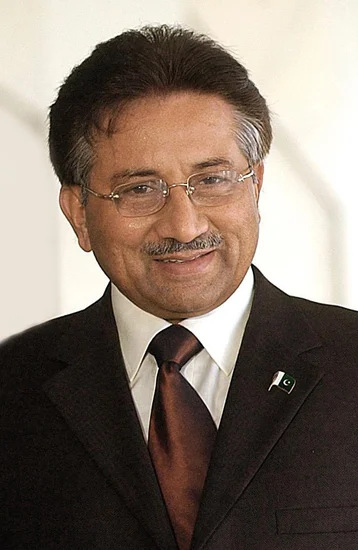
Pakistani President Pervez Musharraf resigned from office under the threat of impeachment proceedings. His departure ended nearly a decade of military-backed rule in the nuclear-armed nation.
The resignation marked Pakistan’s transition toward civilian democratic governance after years of political instability. Musharraf’s exit opened new possibilities for democratic institutions and constitutional rule in the country.
Military and Naval History on August 18
1940 – The Hardest Day Air Battle
The Battle of Britain reached its most intense phase with “The Hardest Day” air engagement over southern England. This massive aerial confrontation represented the largest such battle in history at that time.
Both the Royal Air Force and German Luftwaffe sustained heavy losses during the daylong combat. The battle demonstrated the crucial importance of air superiority in modern warfare and Britain’s determination to resist invasion.
1945 – Battle of Shumshu Commences
Soviet forces launched their invasion of the Kuril Islands by landing at Takeda Beach on Shumshu Island. This amphibious assault marked the beginning of the Soviet Union’s final offensive operations against Japanese forces.
The battle occurred even as Japan was negotiating surrender terms following the atomic bombings. Soviet forces encountered fierce Japanese resistance despite the war’s imminent conclusion, demonstrating the continued intensity of Pacific combat.
1965 – Operation Starlite Begins
United States Marines launched Operation Starlite, destroying a major Viet Cong stronghold on the Van Tuong peninsula. This engagement represented the first major American ground battle of the Vietnam War.
The operation demonstrated American military tactics and firepower in jungle warfare conditions. Marines successfully eliminated enemy positions, establishing patterns of combat that would define American involvement throughout the conflict.
1966 – Battle of Long Tan
Australian forces from the 6th Battalion, Royal Australian Regiment, engaged a substantial Viet Cong force in Phước Tuy Province. The battle showcased Australian military capabilities and determination in Vietnamese jungle conditions.
Despite being outnumbered, Australian troops successfully defended their positions through superior training and coordination. The engagement became one of Australia’s most significant military actions during the Vietnam War.
1976 – Korean Axe Murder Incident
North Korean soldiers killed two US Army officers in Panmunjom’s Joint Security Area during a routine tree-trimming operation. The incident dramatically escalated tensions along the Korean Demilitarized Zone.
The murders prompted massive American military mobilization and brought the peninsula close to renewed warfare. The crisis demonstrated the continued volatility of Korean division three decades after the armistice.
Science and Discovery Milestones on August 18
1903 – Karl Jatho’s Alleged Flight
German engineer Karl Jatho allegedly achieved powered flight in his self-constructed motorized gliding aircraft, four months before the Wright brothers’ historic flight. His experiments represented early European attempts at mechanical aviation.
While the Wright brothers received official credit for first flight, Jatho’s work demonstrated the international pursuit of aviation technology. Multiple inventors worldwide were simultaneously developing solutions to powered flight challenges.
1958 – Brojen Das Swims English Channel

Bangladeshi swimmer Brojen Das became the first Bengali and first Asian to successfully swim across the English Channel in competition. He finished first among 39 international competitors in this grueling endurance test.
Das’s achievement shattered racial and regional barriers in competitive swimming while inspiring athletes across Asia. His victory demonstrated that athletic excellence transcended traditional Western dominance in international competitions.
1976 – Luna 24 Lands on Moon
The Soviet Union’s robotic probe Luna 24 successfully completed its lunar landing mission, continuing the space race’s scientific achievements. The probe collected valuable samples and transmitted crucial data back to Earth.
This mission represented the Soviet space program’s continued technological advancement despite American lunar landing successes. Luna 24’s achievements contributed significantly to humanity’s understanding of lunar geology and composition.
2005 – Massive Java Power Blackout
A catastrophic power failure struck the Indonesian island of Java, affecting nearly 100 million people in one of history’s largest electrical outages. The blackout demonstrated the vulnerability of modern electrical infrastructure systems.
The outage paralyzed transportation, communication, and economic activity across the densely populated island. This incident highlighted the critical importance of reliable electrical systems for modern civilization and economic development.
Cultural and Arts Events on August 18
1923 – First British Women’s Track Championships
London hosted the inaugural British Track and Field championships exclusively for women athletes. This groundbreaking event marked a significant milestone in women’s sports participation and recognition.
The championships provided female athletes with unprecedented opportunities to compete at national levels. The event challenged traditional gender roles in athletics and established foundations for women’s competitive sports development.
1933 – Volksempfänger Radio Unveiled
Nazi Propaganda Minister Joseph Goebbels presented the Volksempfänger radio to the German public at a major exhibition. He proclaimed the radio device as the “eighth great power” in his accompanying speech.
The radio’s introduction represented the Nazi regime’s sophisticated approach to mass communication and propaganda dissemination. This technology would become instrumental in spreading Nazi ideology throughout German society.
1958 – Lolita Published in America
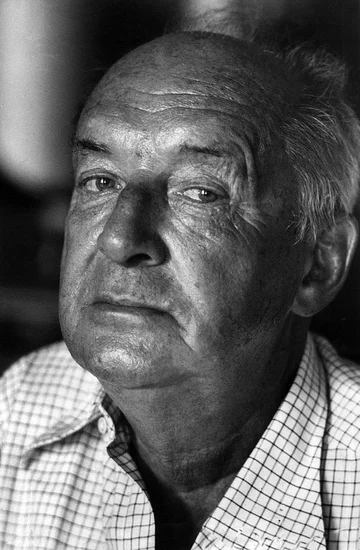
Vladimir Nabokov’s controversial novel Lolita received its American publication, sparking intense literary and moral debates. The book’s complex narrative challenged conventional literary boundaries and social taboos.
Despite initial controversy, the novel achieved recognition as a masterpiece of modern literature. Nabokov’s sophisticated prose and psychological insight elevated the work beyond its provocative subject matter.
Religious and Social Events on August 18
1917 – Great Fire of Thessaloniki
A devastating fire consumed 32% of Thessaloniki, Greece, leaving approximately 70,000 residents homeless. The disaster transformed the city’s urban landscape and displaced thousands of families.
The fire’s destruction necessitated extensive urban planning and reconstruction efforts. This catastrophe ultimately led to modern city planning principles being implemented during Thessaloniki’s rebuilding process.
1950 – Julien Lahaut Assassinated
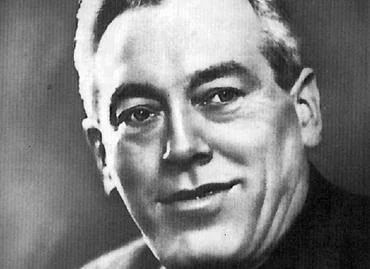
Unknown assailants murdered Julien Lahaut, chairman of Belgium’s Communist Party, in a politically motivated killing. The Communist Party newspaper blamed royalist and Rexist factions for the assassination.
Lahaut’s death highlighted the intense political tensions in post-war Belgium between communist and conservative factions. The assassination demonstrated the violent undercurrents affecting European political stability during the Cold War’s early years.
1989 – Luis Carlos Galán Assassinated

Colombian presidential candidate Luis Carlos Galán was murdered near Bogotá while campaigning for the presidency. His assassination shocked the nation and demonstrated the dangerous intersection of politics and organized crime.
Galán’s death represented a devastating blow to Colombian democratic processes and reform efforts. The killing highlighted the profound challenges facing politicians who opposed drug cartels and corruption.
Business and Economic Events on August 18
1977 – Hurricane Alicia Devastates Texas
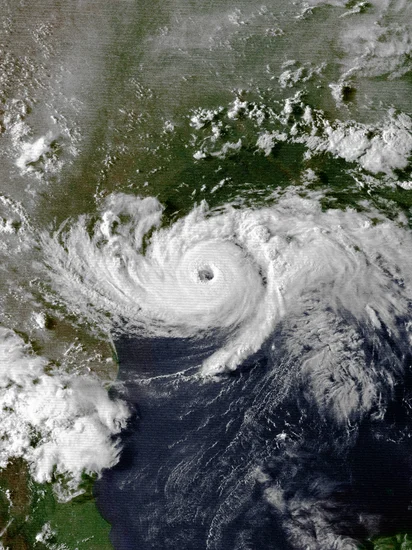
Hurricane Alicia struck the Texas coast with devastating force, killing 21 people and causing over $1 billion in damage. The storm’s economic impact affected numerous industries and communities across the region.
The hurricane’s destruction prompted significant changes in disaster preparedness and insurance policies. Recovery efforts demonstrated the resilience of Texas communities and the importance of emergency management systems.
2019 – Okjökull Glacier Funeral
One hundred activists, officials, and citizens gathered in Iceland to hold a funeral ceremony for Okjökull glacier. The completely melted glacier had once covered six square miles but succumbed to climate change.
This unprecedented event highlighted the urgent reality of global warming and environmental destruction. The ceremony served as a powerful symbol of humanity’s environmental responsibilities and climate change consequences.
Transportation and Infrastructure on August 18
1937 – Blackwater Fire Tragedy
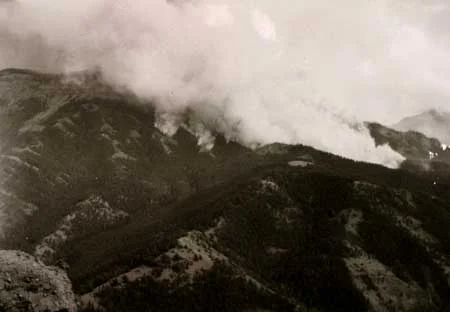
A lightning strike ignited the catastrophic Blackwater Fire in Shoshone National Forest, ultimately killing 15 firefighters within three days. This tragedy prompted the United States Forest Service to develop their revolutionary smokejumper program.
The fire’s devastating impact on firefighting personnel revealed critical gaps in wildfire response capabilities. The subsequent smokejumper program transformed aerial firefighting techniques and improved firefighter safety protocols nationwide.
1938 – Thousand Islands Bridge Dedicated

President Franklin D. Roosevelt dedicated the Thousand Islands Bridge, connecting New York State with Ontario, Canada, across the Saint Lawrence River. This engineering achievement enhanced international transportation and commerce.
The bridge’s completion strengthened economic ties between the United States and Canada while facilitating tourism and trade. The structure demonstrated advanced engineering capabilities and international cooperation during the Depression era.
1993 – Guantanamo Bay Plane Crash
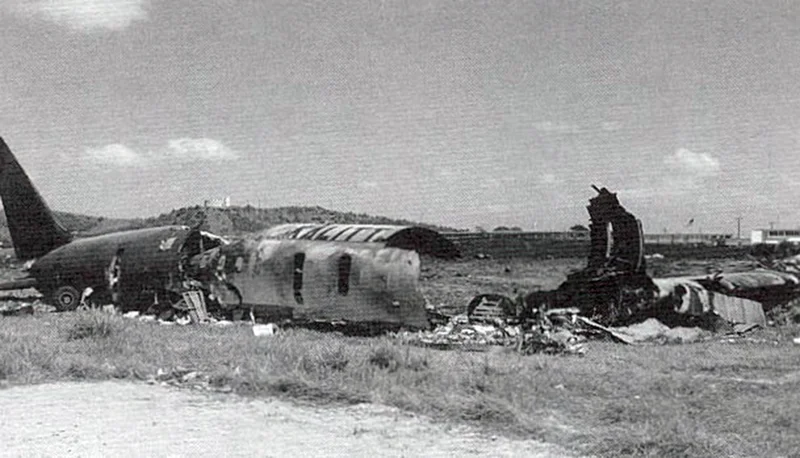
American International Airways Flight 808 crashed at Leeward Point Field at Guantanamo Bay Naval Base, injuring all three crew members. The incident highlighted aviation safety challenges at military installations.
The crash prompted reviews of military airfield safety protocols and emergency response procedures. All crew members survived the accident, demonstrating the effectiveness of aviation safety improvements and emergency training.
Sports and Recreation on August 18
1971 – Australia and New Zealand Withdraw from Vietnam
Australia and New Zealand announced their decision to withdraw military forces from Vietnam, marking the end of their involvement in the conflict. This decision reflected changing public opinion and strategic priorities.
The withdrawal represented a significant shift in ANZUS alliance dynamics and regional security arrangements. Both nations redirected their military focus toward regional defense and peacekeeping operations.
1976 – Korean Axe Murder Incident Sports Impact
The Korean axe murder incident affected international sporting events and cultural exchanges between North and South Korea. Athletic competitions were postponed due to heightened military tensions.
The crisis demonstrated how political conflicts could disrupt sporting relationships and international athletic cooperation. Sports diplomacy became increasingly important in managing inter-Korean tensions and regional stability.
1983 – Hurricane Alicia Sports Disruption
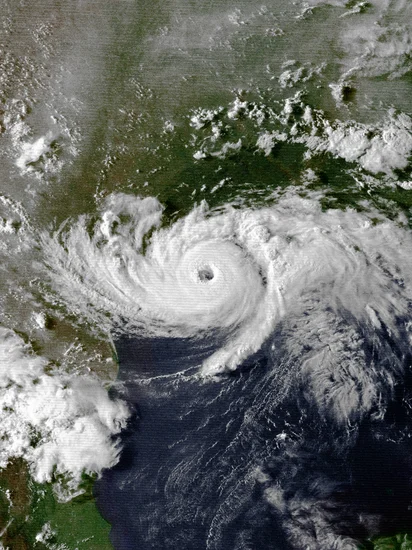
Hurricane Alicia forced the cancellation of numerous sporting events across Texas, affecting professional and amateur athletics. The storm’s impact demonstrated weather’s influence on sports scheduling and facility management.
Recovery efforts included rebuilding damaged sports facilities and rescheduling postponed competitions. The hurricane’s aftermath highlighted the economic importance of sports industries to regional economies.
Notable Births on August 18
1935 – Rosalynn Carter
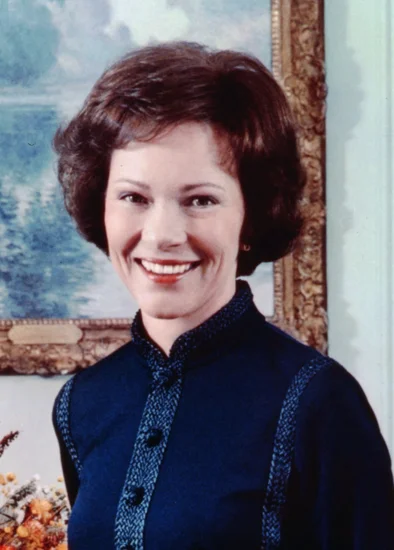
Eleanor Rosalynn Smith Carter was born in Plains, Georgia, destined to become America’s 41st First Lady. Her childhood in rural Georgia shaped her lifelong commitment to mental health advocacy and humanitarian causes.
Carter would later champion mental health awareness and human rights initiatives both during and after her White House years. Her dedication to social justice and compassionate leadership left an enduring legacy in American public service.
1946 – Roman Polanski

Roman Polanski entered the world in Paris, France, though his Polish heritage would profoundly influence his artistic vision. His early experiences during World War II shaped his perspective on human nature and survival.
Polanski would become one of cinema’s most controversial and acclaimed directors, creating masterpieces that explored psychological darkness. His films challenged audiences while demonstrating extraordinary technical and artistic sophistication.
1955 – Robert Redford

Charles Robert Redford Jr. was born in Santa Monica, California, beginning a life that would span acting, directing, and environmental activism. His natural charisma and artistic vision emerged early in his development.
Redford would become a Hollywood icon while championing independent filmmaking through his Sundance Institute. His commitment to environmental causes and artistic integrity defined both his career and personal philosophy.
1957 – Denis Leary

Denis Colin Leary was born in Worcester, Massachusetts, to Irish immigrant parents who instilled strong work ethics and sharp wit. His Boston-area upbringing influenced his distinctive comedic style and cultural perspective.
Leary would develop into a successful comedian, actor, and writer known for his edgy humor and social commentary. His versatility across entertainment mediums demonstrated remarkable creative range and cultural insight.
1969 – Edward Norton

Edward Harrison Norton was born in Boston, Massachusetts, into a family that valued education and social responsibility. His privileged upbringing included exposure to theater and intellectual pursuits from an early age.
Norton would become one of Hollywood’s most respected actors, known for his intense preparation and versatile performances. His commitment to social causes and environmental activism complemented his successful acting career.
1978 – Andy Samberg

Andrew David Samberg was born in Berkeley, California, beginning a journey that would lead to comedy stardom. His early interest in filmmaking and humor developed through childhood creative experiments.
Samberg would achieve fame through Saturday Night Live and digital comedy innovations that revolutionized television humor. His collaborative approach to comedy and musical parody created new entertainment formats.
Notable Deaths on August 18
1940 – Walter Chrysler
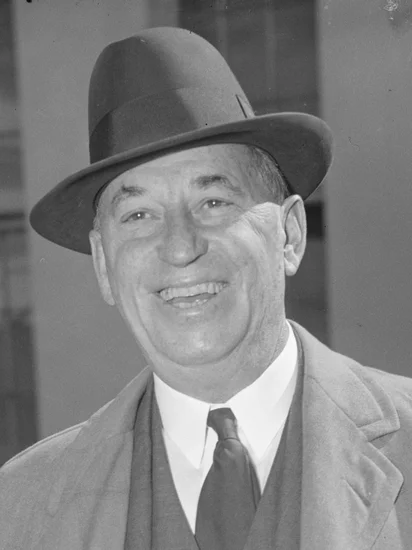
Walter Percy Chrysler, founder of the Chrysler Corporation, died at age 65 after revolutionizing American automobile manufacturing. His engineering background and business acumen transformed the automotive industry landscape.
Chrysler’s innovations in car design and manufacturing processes established lasting industry standards. His company’s success demonstrated how technical expertise combined with business vision could create enduring industrial enterprises.
1945 – Subhas Chandra Bose

Indian independence leader Subhas Chandra Bose died in a plane crash at age 48, ending his controversial but passionate fight for Indian freedom. His militant approach to independence distinguished him from Gandhi’s non-violent methods.
Bose’s death marked the end of one of India’s most dynamic independence movements. His legacy remained complex, inspiring both admiration for his patriotism and criticism for his wartime alliances.
1990 – B.F. Skinner

Burrhus Frederic Skinner, the influential behavioral psychologist, died at age 86 after revolutionizing understanding of human behavior and learning. His scientific approach to psychology challenged traditional theories about human motivation.
Skinner’s operant conditioning theories transformed educational practices and therapeutic approaches worldwide. His invention of the Skinner box and programmed learning techniques influenced generations of researchers and educators.
2009 – Kim Dae-jung

South Korean President Kim Dae-jung died at age 85 after a lifetime dedicated to democracy and human rights. His “Sunshine Policy” toward North Korea earned him the Nobel Peace Prize in 2000.
Kim’s death marked the end of an era in Korean politics and inter-Korean relations. His commitment to peaceful reunification and democratic values inspired democratic movements throughout Asia.
2018 – Kofi Annan
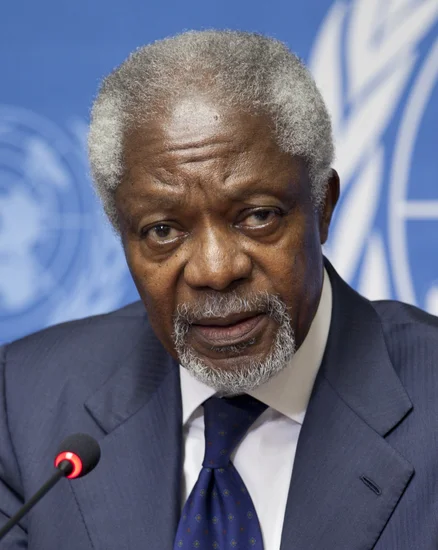
Kofi Atta Annan, Ghana’s son who became the seventh Secretary-General of the United Nations, died at age 80 after decades of international service. His diplomatic leadership guided the UN through numerous global crises.
Annan’s tenure emphasized human rights, peacekeeping, and international cooperation during challenging periods. His Nobel Peace Prize recognition reflected his commitment to global peace and humanitarian principles.
Holidays and Observances on August 18
Constitution Day (Indonesia)
Indonesia celebrates Constitution Day on August 18, commemorating the adoption of the nation’s fundamental governing document. This observance reinforces constitutional principles and democratic values throughout the archipelago.
The holiday encourages civic education and national unity among Indonesia’s diverse population. Citizens participate in ceremonies and educational activities that strengthen democratic institutions and constitutional awareness.
Long Tan Day (Australia)
Australia observes Long Tan Day, also known as Vietnam Veterans’ Day, honoring service members who fought in the Vietnam War. This commemoration specifically remembers the Battle of Long Tan and Australian military sacrifice.
The observance provides opportunities for national reflection on military service and the costs of war. Veterans receive recognition for their service while communities learn about this significant chapter in Australian military history.
National Science Day (Thailand)
Thailand celebrates National Science Day on August 18, promoting scientific education and technological advancement throughout the kingdom. This observance encourages innovation and scientific literacy among Thai citizens.
The holiday features educational programs, science exhibitions, and technology demonstrations nationwide. Schools and universities participate in activities that inspire future generations of Thai scientists and engineers.
Arbor Day (Pakistan)

Pakistan observes Arbor Day on August 18, emphasizing environmental conservation and tree planting initiatives. This celebration promotes ecological awareness and reforestation efforts across the nation.
Communities organize tree-planting ceremonies and environmental education programs during this observance. The day highlights Pakistan’s commitment to combating deforestation and addressing climate change challenges.
